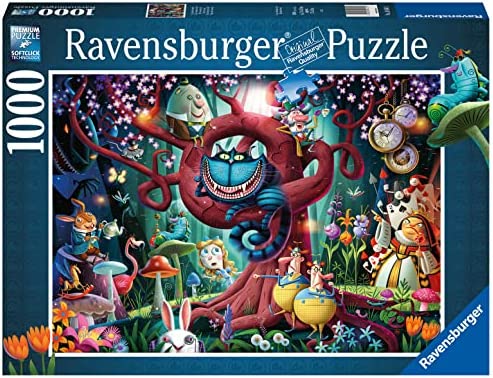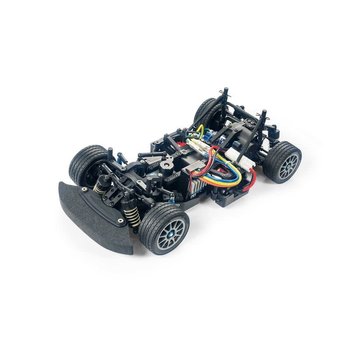
It can be difficult for circular needle knitters to keep track and see your stitches. Stitchers can make this task much easier. These markers are easily slipped onto the needle by being tied to it. A stitch marker helps you to identify the round you are on, and it can also help you avoid repeating the same mistakes twice.
Materials for knitting with circular needles
There are different materials to choose from when knitting on circular needles. There are three options for needle tips: plastic, bamboo or wood. Although they will vary in price and form, all are durable. Plastic needles are generally cheaper than bamboo and metal ones. Bamboo needles make a great choice for beginners. Wooden needles work best for people who are skilled at fast work.
Also important is the size and shape of your needles. For projects that use thick yarn, you will need larger needles. Larger needles can be found in odd sizes such as the 12, 14, 16 or 17 US sizes. If you use a smaller needle, you should use a thinner yarn.

Sizes for fixed circular needles
There are many sizes and types of fixed circular knitting needles. The length of each needle is determined by how long it will be once it is completed. Most needles are between 16 and 48 inches long. There are many lengths available for cable. The most common length is 40 cm, but there are also longer options available.
US 4 is an ideal size for a fixed circle needle. This is not the only size you can buy. You can change the size of some sets of fixed circular needles by simply swapping them.
It is easier to hold than metal ones.
Circular needles are a great choice if you want a needle that is comfortable to hold. These needles have lightweight bamboo sourced from Japan. The bamboo is smooth and tapered. The wire connecting the tips of the needles is flexible. They are 16 inches long from tip to tip, making them both easy to use and comfortable to hold. They can pick up stitches well, and they have enough friction to stop them sliding off. These needles are not as long as metal needles but offer knitters a more comfortable knitting experience.
This brand is a favorite among knitters. This family-owned company makes durable, easy-to-use circulars. The cords are made from nylon-coated stainless steel that resists kinking. Plus, the seamless joint prevents stitches from getting caught in the needle.

Use a stitch marker to knit on circular needles
Stitch markers can prove to be a great aid when knitting with circular needles. You can use them to mark the end or make changes to your pattern like increases or decreases. You can use them to help you remember when it is time for pattern changes. A stitch marker can save you time and yarn.
You don't always need to use a marker to knit on circular needles. But they can help you organize the decreases/increases. A good example of this is the "K2tog", which refers to knitting two stitches together. You can knit these decreases quickly and easily by using a marker.
FAQ
What are observation hobbies?
Observation hobbies are activities where you observe people doing what they do. These hobbies could include reading books, watching sports, or going on vacation. You could also observe other people.
Because they teach you how to think creatively, observation hobbies are great. You can draw on this knowledge later, when you work on projects for others.
It will be easier to learn about something if you are interested in it.
If you're interested in football, for instance, you could watch it or read a book. Exhibitions are a great way to learn about photography.
You can play along with songs online or purchase a guitar if you love music.
You have the option to make your own meals or take out at a restaurant if you enjoy cooking.
If gardening interests you, you could plant vegetables or flowers.
If you like dancing, you could join a dance class or go out with friends.
You could also paint pictures if you are a fan of painting.
Write poetry and stories if that is what you love to do.
You can draw pictures if your passion is drawing.
You could work as a caretaker or keeper at a zoo if you are passionate about animals.
If science is your passion, you might choose to study biology or chemistry.
You can read books, listen to podcasts, or watch films if history interests you.
If you enjoy traveling, you can travel around the world or just explore your own area.
What hobbies are best for introverts and what types of hobbies would they enjoy?
Introverts can concentrate on one thing at the same time. They are more comfortable with solitary activities, such reading, writing, music, and watching movies.
They also enjoy quiet time. They don't enjoy being social all day. In fact, they can often be bored when surrounded with people.
This is why introverts choose hobbies that make them feel alone. They might enjoy reading, listening to music or taking photos, painting, writing poetry, and other such activities.
Introverts may even prefer to live alone. They are able to concentrate on their hobby while not being distracted by other activities.
What are some great hobbies?
Doing something you enjoy is the best hobby. It will be easier to continue doing what you love if you are passionate about your work. You will have a reason when you feel sick or tired.
There are many hobbies that we all enjoy: gardening, painting and crafts; photography; cooking; sports and games; reading music and film-making; collecting; cycling, walking, dancing and writing; playing instruments and other musical instruments.
Another option is to volunteer at a local charity shop.
If you're looking to do something more adventurous, Consider scuba diving and skydiving.
There are many ways to enjoy nature, even if you don't want to travel far. These include caving.
How can I find a hobby?
You might feel as though you don't have a choice when you first start your quest for a hobby.
You may be thinking, "I'm just not artistic" or "I hate sports," or perhaps "I don’t even know what I know."
But the truth is, you probably already have a lot of experience to draw upon when looking for a hobby.
It's just that you haven't realized it yet.
Take a look at the contents of your home. How many things do you own?
Do you have any toys from the past?
Perhaps you have a collection books or magazines.
You might have always wanted the ability to cook.
Or maybe you'd really like to start playing guitar again.
Whatever your hobby, it's possible to make it a hobby.
It is important to recognize that you already have a lot of experience to draw from.
And once you do, you'll be able to pick out a hobby that fits right into your lifestyle.
What are some great hobbies for seniors?
Senior citizens should be able to enjoy activities that they are passionate about. Active seniors should take up sports and other physical activities.
They may be interested in joining clubs to find people with similar interests. This way, they'll feel less lonely as they age.
Senior citizens need to be aware of the latest trends. For example, they could follow fashion, art, music, literature, politics, etc.
What are some ideas for hobbies?
Hobby Ideas for people who love to learn and teach others.
Hobbies are great ways to spend time doing what you enjoy while learning something new at the same time.
There are many hobbies. But they all share similar characteristics. These are fun, easy activities that cost little and don't take too much effort.
These include working with others to teach someone how to use an instrument or build an airplane.
While you may not see yourself as a teacher at first, chances are that there is something you could do for someone else.
You can make a difference in the lives of others by starting a hobby.
Statistics
- Almost 80% of people claim to have no hobby. (hobbylark.com)
- The intensity of the dialogue partners' bond at the end of the forty-five-minute vulnerability interaction was rated as closer than the closest relationship in the lives of 30 percent of similar students. (time.com)
- Studies show that just six minutes of reading can reduce stress levels by 60 percent. (oberlo.com)
- A new survey by Pew Research Center of teens ages 13 to 17 finds that 36% of girls feel tense or nervous about their day every day; 23% of boys say the same. (pewresearch.org)
- 37% Video Games 36% Travel 36% Health and Fitness (quizexpo.com)
External Links
How To
How to learn a music instrument
There are many options for learning how to play the piano. There are many options. You can go to school, purchase a book, learn from an instructor, or watch videos online. Here are some tips and techniques to help you learn if your goal is to create your own learning path.
-
Find something that interests your interest. If you don't like any of the instruments you see around, then you should try another one. It's difficult to take up a hobby if you don’t love playing the instrument.
-
Be patient. Learning anything new takes time. Don't expect to master everything right away. Instead, continue to practice each day.
-
You should practice often. This can be done even when you are tired. This will make sure you don't forget the lessons you have learned.
-
Pick a place where you can practice. A quiet room where you won't disturb anyone else is ideal. You should also make sure there aren’t any distractions. Avoid loud music, for example.
-
Have fun. Music should be enjoyed. It is important to have fun when practicing. Enjoying yourself will motivate you to continue going at it.
-
Set goals. If you set goals, then you will know exactly how you want to get there. There is no excuse for failure.
-
Keep track of how you are doing. Keep track of all your successes and failures. Doing so will help you improve over time.
-
Take breaks. Sometimes you just need to take a break. You will be able to take breaks and think about the things you are doing.
-
Ask questions. Ask for help if you are unsure or have questions about certain aspects of the instrument. They may be able help you.
-
Listening can teach you a lot. Musicians often listen to music they like and try to imitate it. This helps musicians understand the fundamental concepts of the song.
-
Read books. Lessons learned from books are more valuable than videos and classes. You will also find information in books that you won't find anywhere else.
-
Join a group. You will be able to practice more when you play with others. Plus, you'll meet people with the same interests as you.
-
Learn from tutorials. Tutorials are short videos that give detailed information on a topic. Tutorials are short videos that focus on one part of the instrument. Tutorials can be helpful in understanding difficult parts of an instrument.
-
Try different methods. Some prefer to learn by listening, while others prefer reading. Experiment until you find what works best for you.
-
Practice makes perfect. It is not possible to become an expert overnight. It takes a lot of work to be able to perform well.
-
Learn from other musicians. Listening to your fellow musicians perform their favourite songs can help you learn quicker.